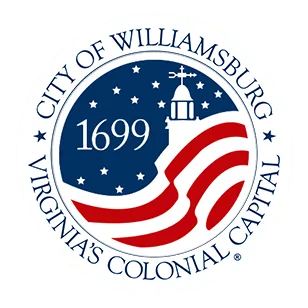With its historic streets, a major university, and steady visitor traffic, Williamsburg, Virginia needed a smarter way to manage parking. For Chief Information Officer Mark Barham, the goal was clear: bring fragmented systems together under one roof, give staff a single source of truth, and create a better experience for residents and visitors alike.
The Challenge: Fragmentation and Frustration
Before Passport Payments, Williamsburg’s parking system was split across multiple providers: mobile app transactions, garage pay stations, and account-based payments. This created inefficiencies for staff, blind spots in financial reporting, and extra complexity for residents.
The City needed one provider that could handle payments, enforcement, permits, and reporting — streamlining reconciliation, boosting compliance, and supporting better decisions with real data.
The Solution: A Comprehensive Approach with Passport
After carefully evaluating eight vendors, Williamsburg selected Passport to consolidate operations into one system. Already a Passport client for mobile payments, the City added enforcement, digital permitting, and most recently Passport Payments, giving staff a single place to track every transaction and trend.
“Bringing payments into one system makes it so much easier on finance. It also helps us analyze trends across the financials and the entire parking operation.” — Mark Barham, Chief Information Officer
The Results: Compliance, Clarity, and a Frictionless Experience
Since going live with Passport Payments, Williamsburg has seen compliance in both payments and citations climb sharply, with reporting showing an average payment compliance rate of 95% and citation volume nearly tripling in the first month. Monthly reports provide the City with clear insights into compliance, revenue, and parker behavior, giving staff the tools they need to plan budgets, justify equipment replacements, and make data-driven adjustments to strategies.
“The money makes the case,” Barham explains. “With the data in hand, I can show my team what’s working and where to invest.”
Beyond financial clarity, the City has also seen a significant drop in neighborhood complaints after moving resident permits from hang tags to digital license plate–based permits. The change has prevented system manipulation, reduced violations, and created a smoother process for both residents and enforcement. For parkers, the shift to digital permits has made the experience nearly effortless: once set up, drivers can simply park and go without needing to interact with gates, apps, or pay stations.
A True Partnership
Replacing an entire parking system is a major undertaking, but Williamsburg credits Passport’s responsiveness as a key factor in making the transition successful. While challenges were inevitable, what stood out most was the speed and certainty of resolution, with issues addressed almost immediately.
When I reach out with a problem, I know it’s going to be resolved right away,” says Barham. “That level of responsiveness is what defines a true partnership.”
Williamsburg’s next phase focuses on creating a more seamless system. Plans include drive-in/drive-out payments for touchless garage entry and exit, along with sensors that send instant alerts for violations like fire hydrants or ADA spaces. With this technology, the City can apply directed enforcement – responding quickly, influencing behavior in real time, and strengthening operations.
By continuing to build with Passport’s unified ecosystem, Williamsburg is setting the stage for smarter, more efficient parking.



